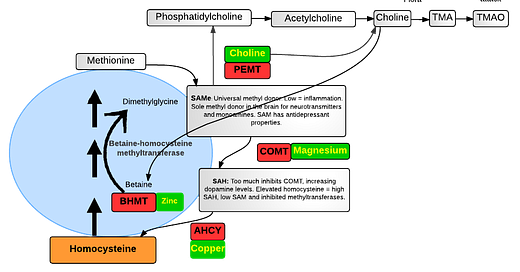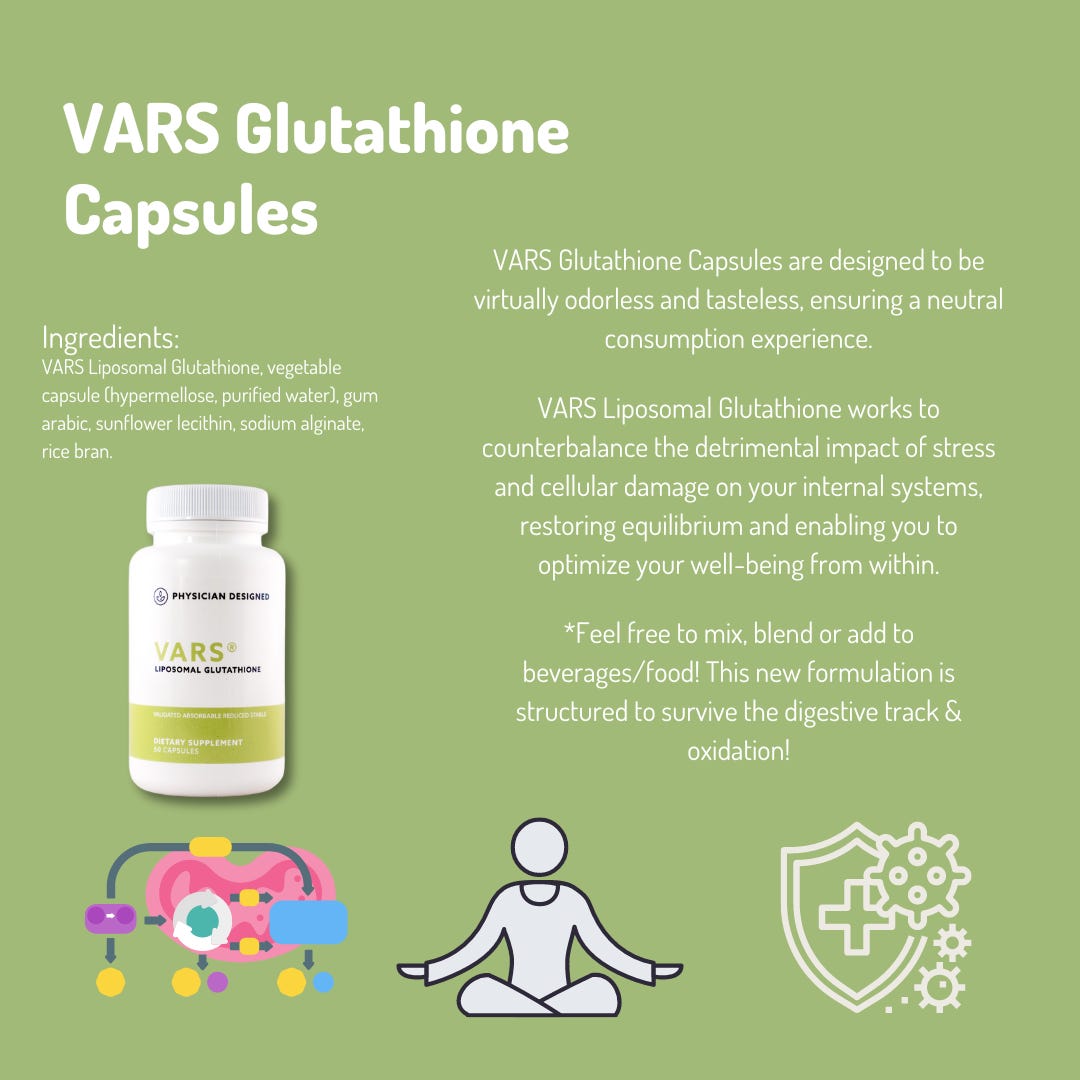The Silent Connection Between PEMT, Crohn’s Disease, and Liver Dysfunction
Chronic inflammatory diseases like Crohn’s disease and ulcerative colitis (UC) continue to pose challenges for both patients and medical professionals. While genetic predisposition and immune dysregulation are widely recognized as factors in these conditions, recent research highlights an often-overlooked culprit: the PEMT gene (phosphatidylethanolamine N-methyltransferase).
The PEMT gene is crucial for producing phosphatidylcholine (PC), a vital phospholipid essential for cell membranes, bile production, and liver detoxification. If PEMT function is impaired—whether due to genetic mutations or dietary factors—the body struggles to make enough PC, leading to gut inflammation, liver dysfunction, and even pancreatitis.
In our clinic, every single Crohn’s and ulcerative colitis patient tested for PEMT mutations had at least one genetic variation affecting their ability to produce PC. This isn’t just theoretical—it’s a real, measurable pattern emerging in patient populations. Fortunately, phosphatidylcholine supplementation and liposomal glutathione may hold the key to reversing these issues.
The PEMT Gene and Its Role in Phosphatidylcholine Production
PEMT is responsible for converting phosphatidylethanolamine (PE) into phosphatidylcholine (PC), primarily in the liver. PC is required for:
✅ Maintaining cell membrane integrity in every organ, including the intestines.
✅ Producing bile for fat digestion and nutrient absorption.
✅ Liver detoxification and the prevention of fatty liver disease (NAFLD).
✅ Protecting the pancreas and preventing inflammation.
However, PEMT gene mutations can disrupt this process, leading to a deficiency of PC.
Why Phosphatidylcholine Deficiency Is a Hidden Factor in Crohn’s and UC
🔬 A PubMed search on “ulcerative colitis” and “phosphatidylcholine” pulls up 96 research studies exploring PC as a treatment for UC.
🔬 A PubMed search on “ulcerative colitis” and “glutathione” returns 447 studies—highlighting the role of oxidative stress in these conditions.
🧬 Genetic PEMT mutations lead to low phosphatidylcholine levels, increasing the risk of gut inflammation, bile dysfunction, and immune dysregulation.
So what happens when your body can’t make enough phosphatidylcholine?
🚨 Chronic Inflammation of the Gut: PC is a major component of the intestinal mucosa. Low PC levels compromise the gut lining, allowing inflammation to take hold.
🚨 Bile Dysfunction: Since bile is made of 80% phosphatidylcholine, PC deficiency leads to poor digestion, fat malabsorption, and gallbladder issues.
🚨 Liver Stress & Fatty Liver: Without PC, the liver struggles to export triglycerides, leading to non-alcoholic fatty liver disease (NAFLD).
🚨 Pancreatic Issues: Research suggests PEMT mutations may also increase pancreatitis risk, possibly due to poor lipid metabolism.
For these reasons, phosphatidylcholine supplementation is emerging as a critical therapy for Crohn’s disease, UC, and liver health.
Phosphatidylcholine Supplementation from Sunflower Lecithin: A Game-Changer
While phosphatidylcholine can be obtained from food, individuals with PEMT mutations or inflammatory bowel disease often require supplementation.
🌱 Sunflower Lecithin is one of the purest, most bioavailable sources of phosphatidylcholine, offering:
✅ Soy-Free, GMO-Free Composition – A clean alternative to soy-derived PC.
✅ High PC Concentration – Directly replenishes the body’s phosphatidylcholine stores.
✅ Liver, Gut & Brain Support – Enhances bile production, gut barrier integrity, and cognitive function.
💡 Clinical Experience: Patients with Crohn’s and UC often see symptom relief within 30 days of starting phosphatidylcholine supplementation. However, for full benefits, it should be combined with liposomal glutathione for optimal detoxification and gut healing.
Liposomal Glutathione (VARS Glutathione): The Perfect Partner to Phosphatidylcholine
While phosphatidylcholine rebuilds the gut lining and supports bile production, glutathione is needed to neutralize oxidative stress and repair intestinal damage.
💧 Why Liposomal Glutathione?
Direct Absorption: Unlike traditional glutathione supplements, VARS Liposomal Glutathione bypasses the digestive breakdown process, ensuring higher bioavailability.
Powerful Antioxidant Support: Neutralizes inflammation that drives Crohn’s disease and ulcerative colitis.
Liver Detoxification: PEMT mutations impair liver function—glutathione helps detoxify heavy metals, pesticides, and inflammatory byproducts.
Synergistic with Phosphatidylcholine: Glutathione and PC work together to repair intestinal and liver function.
📌 Key Finding: Patients who take both phosphatidylcholine and liposomal glutathione often see complete resolution of symptoms—unless they stop supplementing, at which point symptoms may return.
A Breakthrough Approach for Gut & Liver Health
📍 If you have Crohn’s disease or ulcerative colitis, checking your PEMT status is crucial.
📍 If you struggle with liver dysfunction or fatty liver, phosphatidylcholine supplementation is a game-changer.
📍 If you experience chronic inflammation, liposomal glutathione is essential for recovery.
✨ The Science Is Clear: Combining phosphatidylcholine (from sunflower lecithin) with VARS Liposomal Glutathione may provide miraculous results for patients with Crohn’s disease, ulcerative colitis, and PEMT-related health issues.
By addressing phosphatidylcholine and glutathione deficiencies, we can support gut healing, liver detoxification, and long-term health.



















Share this post